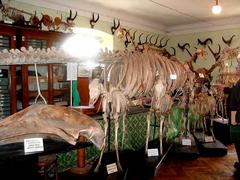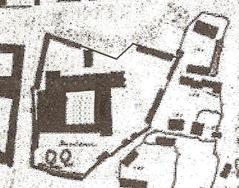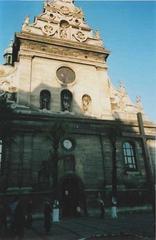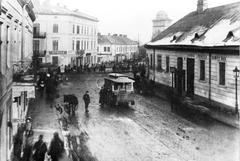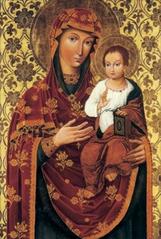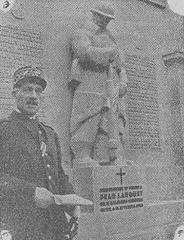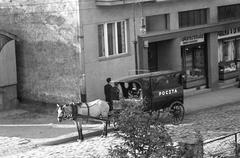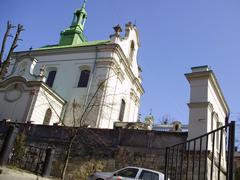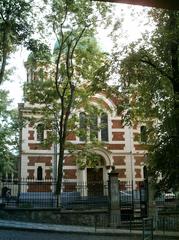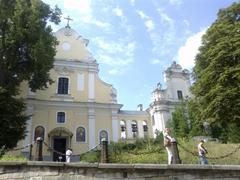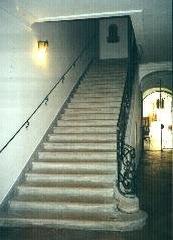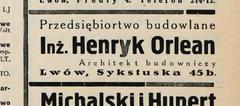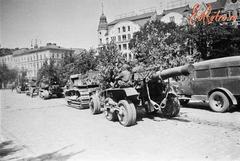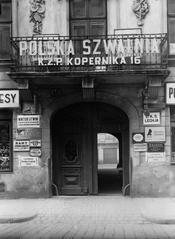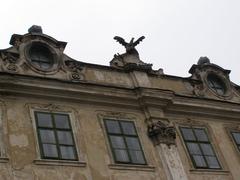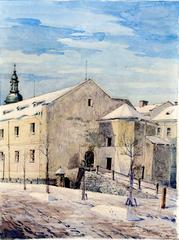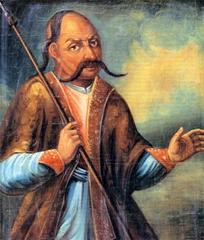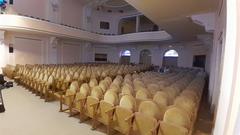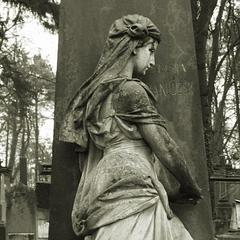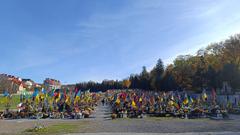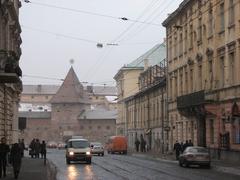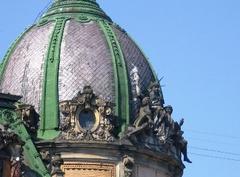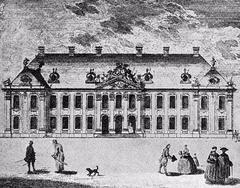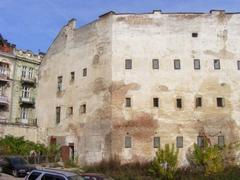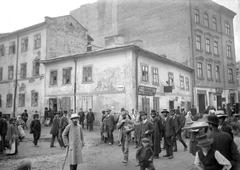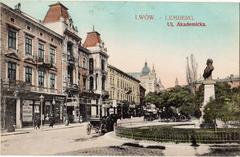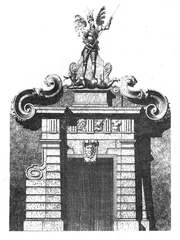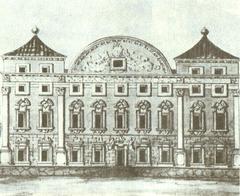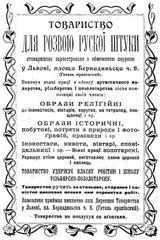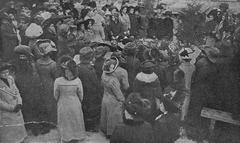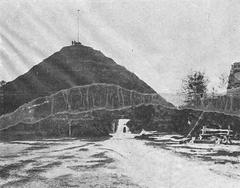
Secret Ukrainian University in Lviv: Visiting Hours, Tickets, and Historical Significance
Date: 03/07/2025
Introduction
Lviv, celebrated for its multicultural heritage and intellectual vibrancy, is home to one of Ukraine’s most resilient stories: the Secret Ukrainian University. Operating clandestinely from 1921 to 1925, this underground institution arose as a direct response to the suppression of Ukrainian-language education by Polish authorities after World War I. Denied the right to study in their native language and excluded from official universities, Ukrainian professors and students risked their freedom to preserve national identity and academic autonomy.
This guide provides an in-depth look at the origins of the Secret Ukrainian University, its academic and cultural impact, and practical information for visitors wishing to explore its legacy in modern Lviv. You’ll find details on historical sites, museums, guided tours, accessibility, and travel tips, ensuring a meaningful visit to the landmarks associated with this remarkable chapter in Ukrainian history. For further research and planning, consult the Encyclopedia of Ukraine, Visit Ukraine, and MyWanderlust Lviv Guide.
Table of Contents
- Origins and Founding of the Secret Ukrainian University
- Structure, Leadership & Academic Life
- Suppression, Resistance, and Closure
- Enduring Legacy & Cultural Significance
- Practical Visitor Information
- Frequently Asked Questions (FAQ)
- Summary & Final Recommendations
- Sources
Origins and Founding of the Secret Ukrainian University
The Secret Ukrainian University (Lvivskyi [taiemnyi] ukrainskyi universytet) was founded in July 1921 after Polish authorities abolished Ukrainian-language chairs and academic positions in Lviv’s official universities (Encyclopedia of Ukraine). With Ukrainian students barred from higher education, intellectuals and community leaders, including the Shevchenko Scientific Society, the Mohyla Scholarly Lectures Society, and the Stauropegion Institute, began organizing secret university-level courses as early as September 1919. This initiative provided a lifeline for those determined to maintain Ukrainian scholarship and identity.
Structure, Leadership & Academic Life
Despite its clandestine nature, the Secret Ukrainian University quickly became a hub for academic excellence and national awakening. In its first year, the university comprised 54 departments with 1,260 students, growing to 65 departments and 1,500 students by 1922. Vasyl Shchurat served as the first rector, followed by Mariian Panchyshyn and Ye. Davydiuk. Dismissed professors and dedicated scholars led courses in humanities, law, medicine, and the sciences (Encyclopedia of Ukraine). Classes took place in private apartments, church basements, and other hidden venues throughout Lviv, with all participants risking arrest or imprisonment.
Suppression, Resistance, and Closure
The Secret Ukrainian University operated against a backdrop of intense political repression. Following the Polish-Ukrainian War (1918–1919), Poland’s policies of polonization marginalized Ukrainian cultural and educational institutions. As the university grew, so did the risks. In 1925, increased pressure from authorities and failed negotiations for a legal Ukrainian university led to its closure (Leopolis Scientifica; EEHB Journal).
Enduring Legacy & Cultural Significance
Although the Secret Ukrainian University ceased to exist as a physical institution, its legacy endures. Alumni and faculty became influential figures in Ukrainian academic, cultural, and political life. The university’s story is honored in Lviv through commemorative plaques, museum exhibits, and educational initiatives. It serves as a symbol of resilience, national pride, and the enduring power of education as a tool for cultural survival (Visit Ukraine; MyWanderlust Lviv Guide).
Practical Visitor Information
Key Locations & Accessibility
While there is no single university campus to visit, several Lviv sites are associated with the Secret Ukrainian University:
- Ivan Franko National University of Lviv (Universytetska St, 1): A key academic landmark and starting point for historical tours.
- Commemorative Plaques: Scattered across the city center and Armenian Quarter, these mark former lecture sites.
- Lviv Historical Museum: Offers exhibits on interwar Lviv, the Ukrainian resistance, and the Secret University’s legacy.
- House of Scientists and Historic Courtyards: Venues for clandestine academic gatherings.
Most locations are within walking distance of Lviv’s Old Town, accessible via foot, tram, or ride-hailing services (MyWanderlust Lviv Guide).
Visiting Hours & Tickets
- Lviv Historical Museum: Open Tuesday–Sunday, 10:00 AM to 6:00 PM. Tickets cost
50 UAH ($2). - Museum of the History of Religion: Open daily, 10:00 AM to 5:00 PM. Entrance ~40 UAH.
- University buildings and public plaques: Generally accessible during daytime hours; no ticket required for outdoor commemorative sites.
Always check official websites for the most current information.
Guided Tours & Museum Resources
Guided tours are highly recommended to fully appreciate the university’s significance. Options include:
- Thematic city walks highlighting academic resistance.
- Museum tours featuring archival materials and interactive exhibits.
- Bookable experiences via TourHQ, Lviv Travel, or Road is Calling.
Tour prices range from $10–$30 per person.
Nearby Attractions
Integrate your visit with other Lviv highlights:
- Lviv Opera House
- Market Square (Rynok Square)
- Lychakiv Cemetery
- Lviv National Art Gallery
- Armenian Quarter
Travel & Safety Tips
- Safety: Lviv remains safe for tourists as of July 2025. Register with your embassy, monitor news, and obtain comprehensive travel insurance (Visit Ukraine Safety Guide).
- Getting There: Lviv is accessible by train from Poland (Kraków, Przemyśl) and by air, subject to security updates.
- Local Etiquette: Respect commemorative sites and ask permission before photographing. Support local guides and museums through official tours and ticket purchases.
- Language: Ukrainian is predominant, but English is widely spoken in tourist areas; museums provide English materials.
Accessibility Considerations
Central sites are generally walkable, but some older buildings may have limited wheelchair access. Lviv’s tram system is affordable; ride-hailing apps are also available (MyWanderlust Lviv Guide).
Frequently Asked Questions (FAQ)
Q: Can I visit the original Secret Ukrainian University campus?
A: No, the university operated in various secret locations without a single campus. However, historical sites and plaques throughout Lviv mark its legacy.
Q: Are there guided tours focused on the Secret Ukrainian University?
A: Yes, many local tour providers offer themed academic history tours.
Q: What are the typical museum hours and costs?
A: Museums are open from 10:00 AM to 6:00 PM, Tuesday–Sunday. Tickets generally cost 40–50 UAH ($1.50–$2).
Q: Is Lviv safe for visitors?
A: Yes, Lviv is considered safe in 2025, but always check the latest travel advisories.
Q: Is the site accessible for people with disabilities?
A: Accessibility varies. Museums and main sites are generally accessible, but historic infrastructure may pose challenges.
Summary & Final Recommendations
The Secret Ukrainian University epitomizes the determination of Ukraine’s academic community in the face of adversity. While the institution itself was short-lived and left no dedicated campus, its influence persists in Lviv’s educational and cultural fabric. Visitors can experience this legacy by exploring museums, university landmarks, and thematic guided tours.
To maximize your visit:
- Begin at Ivan Franko National University and the Lviv Historical Museum.
- Seek out commemorative plaques and join a guided walking tour.
- Incorporate other cultural sites for a comprehensive experience.
- Download the Audiala app for audio guides and updated information.
For history enthusiasts and cultural travelers alike, the Secret Ukrainian University offers a profound narrative of scholarship, resilience, and national pride.
Sources
- Encyclopedia of Ukraine
- Visit Ukraine
- MyWanderlust Lviv Guide
- EEHB Journal
- Leopolis Scientifica
- Visit Ukraine Safety Guide
- TourHQ
- Lviv Travel
- Road is Calling
- Spapers.eu
- World City History
- Young Pioneer Tours


